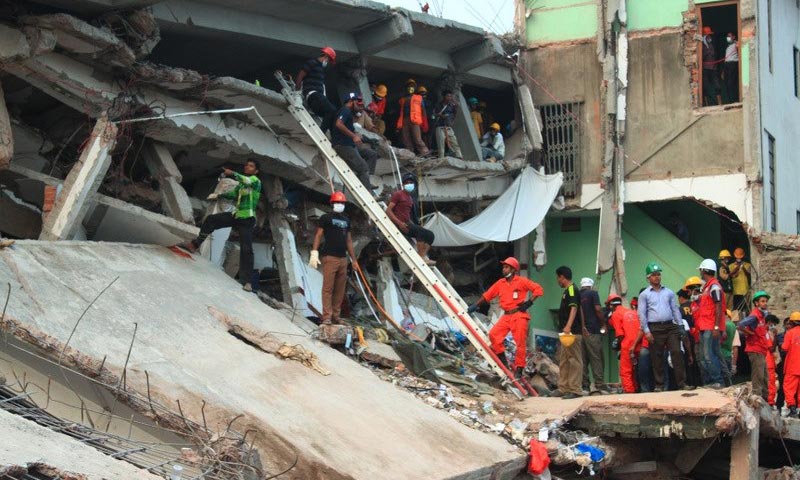
Association Blames Western Retailers for Bangladesh Factory Collapse
Days after a deadly Bangladesh factory collapse, an association in the country is raising concerns about Western retailers. How have companies responded?
Plenty of blame has been assigned following the collapse of a garment factory in Bangladesh on April 24, but one association has a finger pointed firmly at Western retailers.
The retailers only talk about ethical sourcing. I think this is the time we start talking about ethical buying.
Shahidullah Azim, vice president of the Bangladesh Garment Manufacturers and Exporters Association, called for companies to improve safety conditions in overseas factories by reconsidering “cutthroat buying practices” and paying higher prices for particular garments to underwrite safety improvements.
“The retailers only talk about ethical sourcing,” Azim said in a Huffington Post report. “I think this is the time we start talking about ethical buying.”
The association’s comments put even more pressure on Western companies to find ways to prevent future disasters.
Retailers, including Wal-Mart, GAP, and JCPenney, met in Germany on April 29 to resume talks on improving factory conditions in Bangladesh that began in April 2011.
Along with international labor activists, the companies discussed an agreement that forces businesses to pay suppliers more so factory owners can afford to upgrade safety measures. Instituting a clearinghouse of factory-inspection results was also part of the discussion. The group plans to publish the results of the talks sometime this month.
PVH Corp., a company that produces Tommy Hilfiger brand apparel, and German retailer Tchibo have signed the original memorandum.
“My hope is that companies have been shocked to their cores by seeing the photos and hearing the workers’ quotes coming out of Rana Plaza,” said Liana Foxvog, a spokeswoman for the International Labor Rights Forum, in a Bloomberg article. “I trust that they realize that enough is enough and have the sense to sign on to the same core elements that PVH and Tchibo have adopted.”
The Retail Council of Canada said on its website that it will “develop an updated set of responsible trade guidelines, best practices, educational material, and resources for the industry,” as well as join a coalition with other associations to work with the Bangladeshi government and international labor groups to address safety concerns.
Any future agreements will have to include a plan to bridge the gap between the “rock-bottom prices” sought by Western retailers and to keep foreign workers safe to satisfy groups like Bangladesh Garment Manufacturers and Exporters Association.
“How much less you could pay for a product?” Azim asked in the Huffington Post. “How can a garment businessman keep up with this ever-increasing demand? Of course, by using every opportunity to minimize production costs—paying workers less and not caring about workplace safety.”
A photo of the collapsed building in Savar, a city near the capital of Bangladesh, Dhaka. (photo by Sharat Chowdhury/via Wikipedia)






Comments